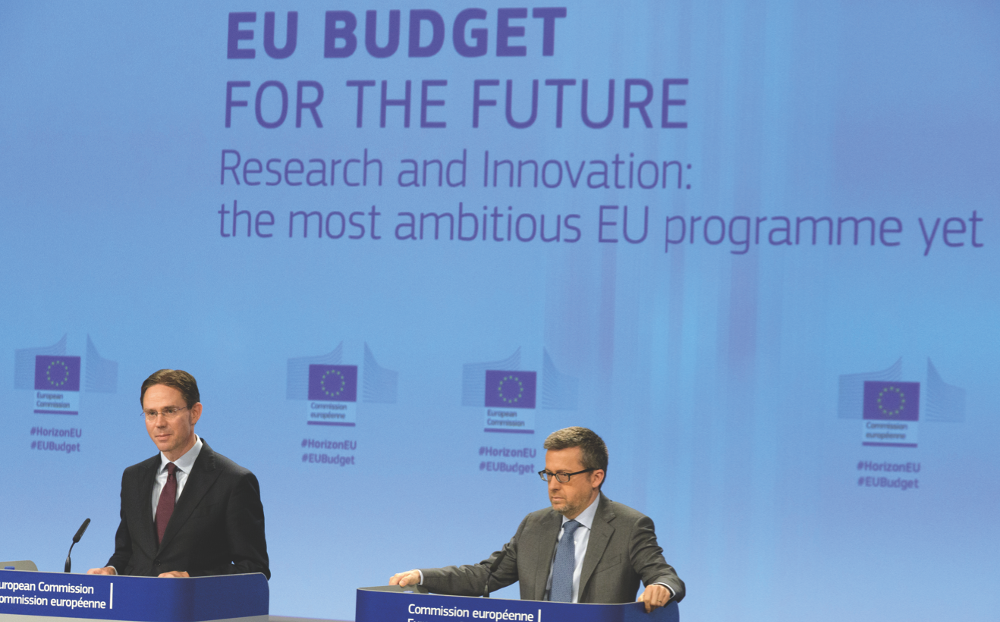
EC earmarks €97.6m for Horizon
In Brussels, European Commissioners Jyrki Katainen and Carlos Moedas proposed a budget increase of 25% for the next European Research and Innovation programme Horizon Europe (2021-27) compared to Horizon 2020. Insummer, however, the EC's High LevelGroup recommended a budget of at least €120bn.
Predecessors to the EU’s ninth framework programme have had budgets of €50.5bn (FP7) and €74.9bn (Horizon 2020), respectively. Christian Ehler and Dan Nica, the MEPs that will steer the programme through the European Parliament, however, said they want to fight for the €120bn budget. Ehler said the budget proposed by the European Commission does not live up to its ambition to meet global challenges. EFPIA’s Secretary General, Nathalie Moll, commented: Its good, but of course we had pinned our hopes on something close to the High Level Group report. Horizon Europe is built on three thematic pillars, which will be complemented by Invest-EU, an €15.2bn investment support programme to speed up commercialistation of R&D results. The EC expects it to attract further investments of €650bn.
An Open Science pillar earmarks €25.8bn for basic research – €16.6 bn for the European Research Council ERC, €6.8bn for Marie Sklodowska- Curie Actions, and €2.4bn for research infrastructures.
A Global challenges pillar is designed to support research relating to societal challenges. Its five missions will get €52.7bn, the biggest slice of the pie: €7.7bn is earmarked for health; €8bn for inclusive and secure societies; €10bn for the digital and industry mission; €15bn for climate, energy and mobility; and an additional €10bn for food and natural resources.
The novel €13.5bn Open Innovation pillar aims to make Europe a front runner in market-creating innovation. €10.5bn has been earmarked for the European Innovation Council (EIC), a one-stop shop for high potential and breakthrough technologies and innovative companies with potential for scaling up. EIC has been inspired by tDARP A, the US agency responsible for ground-breaking innovations such as the Internet, the GP S, and stealth technology. The EIC will fund moonshot research and the new focus won’t come at the expense of the European Institute of Technology (EIT), which will receive €3bn (Horizon 2020: €2.7bn).
Additionally, the Commissions JRC stands to get €2.2 bn through fellowships and exchanges as well as funding to projects driven by researchers themselves, through the European Research Council and the Marie-Sk?odowska-Curie actions.
While the UK was FP7’s biggest beneficiary in FP7 – with tax contributions of only €5.4bn but FP7 funding of €8.7bn – it will be the biggest looser in Horizon Europe because of Brexit. Observers told European Biotechnology they expect the UK to get less support than other associated nations such Israel or Ukraine.
First published in European Biotechnology Magazine Summer edition 2018


 Sitryx Therapeutics
Sitryx Therapeutics
